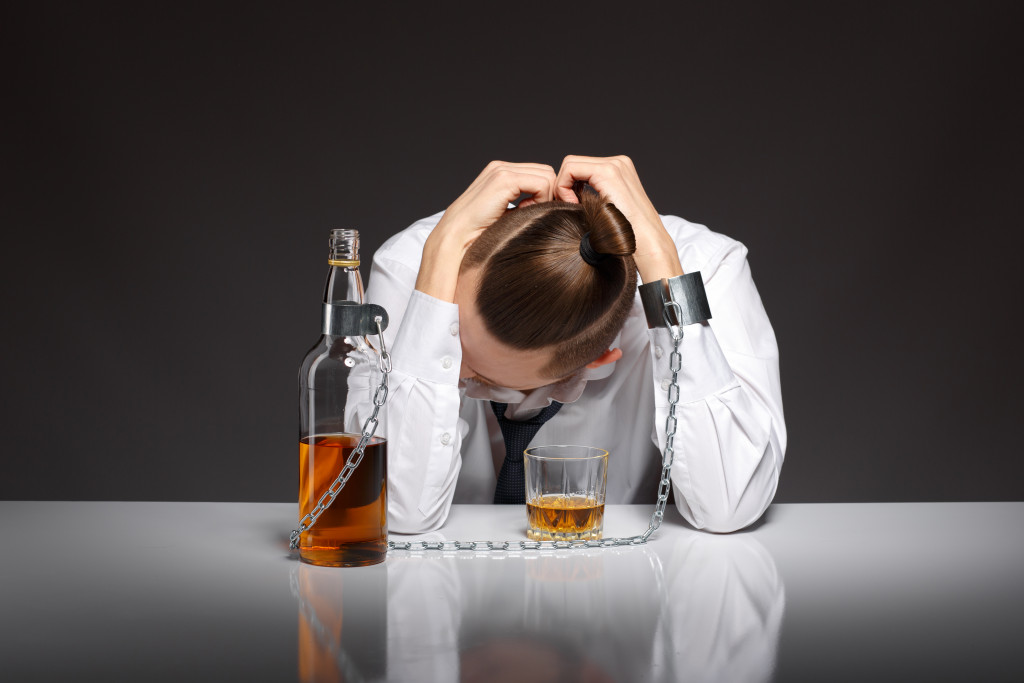The pandemic has been stressful for a lot of people. Many of them tried to cope by consuming alcohol.
Alcohol Consumption during Pandemic
It is not unusual for people to turn to alcohol to deal with overwhelming emotions or a traumatic experience. The pandemic brought both to the population. People all over the world reported symptoms of anxiety and depression. Those who already have anxiety and depression felt that their condition worsened in the past year. Experts are also said that the world experienced mass trauma because of COVID-19.
In short, it is not surprising that people started drinking or increased their alcohol consumption in 2020.
Research published late last year in the American Journal of Drug and Alcohol Abuse looked at the impact of the ongoing global health crisis and the resulting economic recession on the public’s consumption of substances. The researchers used data from a survey of nearly 2,000 respondents over 18 in the U.S.
It revealed that the likelihood of heavy alcohol consumption among binge drinkers — described as those who consumed four drinks among women and five among men within two hours — increased by an extra 19 percent every week of lockdown.
Those who are binge drinkers, on average, consumed four drinks per occasion during the pandemic. For comparison, non-binge drinkers only drank two. Those who drank at harmful levels consumed seven drinks maximum per occasion during lockdowns. Moreover, living with children reduced the odds of drinking alcohol by 26 percent for all respondents.
Turning to alcohol to cope with overwhelming emotions or traumatic experiences is unhealthy. It can lead to addiction which will be hard to break. Alcoholics have to go to an alcohol rehabilitation center to stop drinking.
Moreover, consumption is bad for one’s health. In fact, a new study found that drinking caused more than 700,000 cases of cancer in 2020 alone.
Link Between Alcohol and Cancer
The study, published in July 2021 in Lancet Oncology, revealed that over 4 percent of all new cancer cases in 2020 could be traced back to alcohol consumption. Those who were diagnosed with the disease were reportedly having more than two drinks per day. About three-quarters of all alcohol-linked cancers were diagnosed in men. The most common cancers among men were liver and esophageal. Meanwhile, among women, breast cancer was most prevalent.
Experts explain that alcohol irritates every part of the body it comes in contact with, including the lining of the mouth, throat, esophagus, and stomach. Those areas need to heal. But, sometimes, it heals abnormally. That is how several types of cancers occur.

Moreover, alcohol can cause damage to the liver, resulting in inflammation and scarring. Those who have damaged liver are at an increased risk of liver cancer.
Meanwhile, the link between alcohol consumption and breast cancer is less direct. Even small amounts of alcohol can raise estrogen levels in the body, increasing a woman’s risk of breast cancer. One recommended way to prevent breast cancer among women is to cut back and eventually stop drinking alcoholic beverages.
All types of alcohol are bad for one’s health. Drinking every once in a while would not cause problems, but reaching for a bottle every day, whether wine or whiskey, will be bad. The higher the alcohol content, the worse it will affect the body. However, even milder drinks can damage the body. The most important factor that will increase a person’s risk of cancers is frequency, not what they drink.
The same study also found that drinking at least one cup of coffee every day will lower a person’s risk of developing liver cancer and basal cell carcinoma (skin cancer).
Healthy Alternatives to Alcohol
Coping with stress caused by the pandemic through alcohol is unhealthy. There are other ways to manage your emotions better, and it would not damage the body in any way.
Experts recommend physical activity. Exercising regularly improves mood. It triggers the release of several hormones, such as endorphins and endocannabinoids. People who work out every day experience lower levels of anxiety and generally feel more positive about themselves.
Meditation is a practice that has been around for centuries, and recent studies revealed that it lowers levels of stress and anxiety. It is a simple activity that only requires you to sit in a quiet spot and focus on your breath. This will let you forget all the problems in the world, even for just a few minutes.
Many people turn to alcohol whenever they have a negative experience or emotion. This, however, can lead to addiction and illnesses. There are better ways to cope with the current public health crisis.

